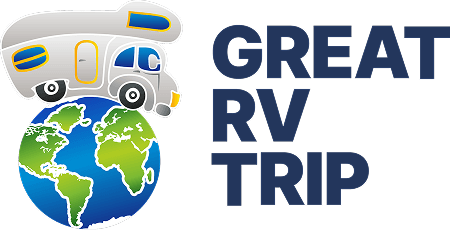Motorhome travel
Motorhome travel
The discount is valid for bookings over 10 days
Motorhome rental
Leave your contacts so we can contact you
Route with Full Travel Support
We will create a personalized route tailored specifically to your wishes and interests. You’ll receive a detailed travel guide with descriptions of must-see attractions, up-to-date prices, and helpful tips. We’ll book your campsites in advance and mark convenient stopovers, so everything is planned for you.
Prefer spontaneous travel and making decisions on the go? We’ve got you covered with full support along the way. We’ll be in touch with you 24/7 to:
Find and book a great restaurant or tour along the route;
Help locate nearby service points, like water disposal or refueling stations;
Quickly adjust your route if you’re in the mood for new experiences.
With us, your journey will be easy, well-organized, and truly free.
Prefer spontaneous travel and making decisions on the go? We’ve got you covered with full support along the way. We’ll be in touch with you 24/7 to:
Find and book a great restaurant or tour along the route;
Help locate nearby service points, like water disposal or refueling stations;
Quickly adjust your route if you’re in the mood for new experiences.
With us, your journey will be easy, well-organized, and truly free.
Welcome to the ultimate road trip destination! Turkey, a vibrant country bridging two continents, offers an unparalleled adventure for motorhome and campervan travelers. Imagine waking up to the turquoise waves of the Mediterranean, exploring the otherworldly landscapes of Cappadocia, and uncovering ancient ruins—all with the freedom and comfort of your home on wheels. We provide reliable, top-quality RV rentals across Turkey's key locations, including Istanbul, Antalya, and Izmir. Whether you're a seasoned road tripper or a first-time adventurer, we have the perfect vehicle for your journey.
A brief overview of the country
The capital of Turkey is Ankara.
Driving is on the right-hand side of the road.
Languages: The official language is Turkish. In tourist regions, hotels, and large shops, staff often speak English, and sometimes German or Russian. In the eastern regions, Kurdish and Arabic are also common. Knowing a few basic Turkish phrases can be helpful and will be appreciated by locals.
Currency and Money: The national currency is the Turkish lira (TRY, ₺). Visa and Mastercard are accepted in many shops, restaurants, hotels, and major gas stations. However, cash in lira is necessary for purchases at markets, small shops, some types of public transport, tips, or minor services. ATMs (Bankamatik) are widespread. Currency exchange (euros, dollars) is available at banks or exchange offices (Döviz bürosu).
When bringing in or taking out cash over €10,000 (or equivalent), a customs declaration is required.
Time: Turkey is in a single time zone (TRT, UTC+3). There is no daylight saving time.
Visa Requirements: Tourists from the EU, the UK, and the US can visit Turkey visa-free for up to 90 days within any 180-day period. Australian citizens must apply for an e-Visa prior to arrival, which also allows for a 90-day stay. Since immigration rules can change, please check the official Turkish Ministry of Foreign Affairs website for the most up-to-date information.
Driving is on the right-hand side of the road.
Languages: The official language is Turkish. In tourist regions, hotels, and large shops, staff often speak English, and sometimes German or Russian. In the eastern regions, Kurdish and Arabic are also common. Knowing a few basic Turkish phrases can be helpful and will be appreciated by locals.
Currency and Money: The national currency is the Turkish lira (TRY, ₺). Visa and Mastercard are accepted in many shops, restaurants, hotels, and major gas stations. However, cash in lira is necessary for purchases at markets, small shops, some types of public transport, tips, or minor services. ATMs (Bankamatik) are widespread. Currency exchange (euros, dollars) is available at banks or exchange offices (Döviz bürosu).
When bringing in or taking out cash over €10,000 (or equivalent), a customs declaration is required.
Time: Turkey is in a single time zone (TRT, UTC+3). There is no daylight saving time.
Visa Requirements: Tourists from the EU, the UK, and the US can visit Turkey visa-free for up to 90 days within any 180-day period. Australian citizens must apply for an e-Visa prior to arrival, which also allows for a 90-day stay. Since immigration rules can change, please check the official Turkish Ministry of Foreign Affairs website for the most up-to-date information.
The motorhome market in Turkey has its own characteristics.
High import duties and taxes make importing European campers into Turkey unprofitable. As a result, local companies convert used cargo or passenger vans into motorhomes.
The average Turkish camper has a modern, freshly built interior, while the vehicle itself is always more than 5 years old, with a mileage of 50,000 to 100,000 kilometers.
Most rental companies offer campervans (kastenwagen format) designed for 3–4 people. These are typically based on Fiat Ducato, Peugeot Boxer, or Citroën Jumper vans. A few rental providers also have overcab (alkoven) motorhomes for 5–6 people.
As in Europe, most Turkish campers come with manual transmissions.
You can view the available models on the page below.
It’s worth noting that Turkish companies have learned to build high-quality, well-equipped campers. We work with reliable rental partners who carefully maintain their motorhomes and always return security deposits. You can feel confident and at ease when renting a camper in Turkey through us.
High import duties and taxes make importing European campers into Turkey unprofitable. As a result, local companies convert used cargo or passenger vans into motorhomes.
The average Turkish camper has a modern, freshly built interior, while the vehicle itself is always more than 5 years old, with a mileage of 50,000 to 100,000 kilometers.
Most rental companies offer campervans (kastenwagen format) designed for 3–4 people. These are typically based on Fiat Ducato, Peugeot Boxer, or Citroën Jumper vans. A few rental providers also have overcab (alkoven) motorhomes for 5–6 people.
As in Europe, most Turkish campers come with manual transmissions.
You can view the available models on the page below.
It’s worth noting that Turkish companies have learned to build high-quality, well-equipped campers. We work with reliable rental partners who carefully maintain their motorhomes and always return security deposits. You can feel confident and at ease when renting a camper in Turkey through us.
Why a Motorhome Trip in Turkey is an Unforgettable Experience
- Unmatched Freedom & FlexibilityForget rigid hotel schedules. With a campervan, you are the master of your itinerary. Chase the sun along the Lycian coast, linger an extra day in a charming village, or find a secluded beach cove for a private sunset. Your route is limited only by your imagination.
- Incredible Diversity in One TripWhere else can you swim in four seas, hike through pine-scented mountains, wander through Roman amphitheaters, and marvel at Byzantine art all in one holiday? Turkey's compact geography makes it possible to experience vastly different landscapes and historical eras within a single road trip.
-
 Deep Cultural ImmersionA motorhome allows you to get off the beaten path. Shop for fresh produce at local village markets (pazar), share a cup of tea (çay) with friendly locals, and discover authentic restaurants far from the tourist crowds. It's the most genuine way to experience Turkish hospitality.
Deep Cultural ImmersionA motorhome allows you to get off the beaten path. Shop for fresh produce at local village markets (pazar), share a cup of tea (çay) with friendly locals, and discover authentic restaurants far from the tourist crowds. It's the most genuine way to experience Turkish hospitality. - Cost-Effective TravelSave significantly on accommodation and dining. With your own kitchen, you can prepare delicious meals from fresh, local ingredients. Plus, with many opportunities for free and low-cost overnight stays, your travel budget stretches much further.
Popular regions and routes for motorhome travel
There are many interesting destinations for motorhome travel in Turkey.
Here are a few popular options:
Here are a few popular options:
-
 Aegean coastIt stretches from Çanakkale in the north to Fethiye in the south. This region is rich in world-famous ancient ruins (Troy, Pergamon, Ephesus, Miletus, Priene), scenic bays, olive groves, and resort towns such as Kuşadası, Bodrum, and Marmaris. The coastal roads are mostly of good quality. There are campgrounds and parking areas along the way. Not far from the coast are the famous limestone terraces of Pamukkale.
Aegean coastIt stretches from Çanakkale in the north to Fethiye in the south. This region is rich in world-famous ancient ruins (Troy, Pergamon, Ephesus, Miletus, Priene), scenic bays, olive groves, and resort towns such as Kuşadası, Bodrum, and Marmaris. The coastal roads are mostly of good quality. There are campgrounds and parking areas along the way. Not far from the coast are the famous limestone terraces of Pamukkale. -
 Mediterranean (Turquoise) coastFrom Fethiye to Antalya and further east. This coast is famous for its beaches (Ölüdeniz, Kaputaş), crystal-clear water, rocky shores, and ruins of Lycian cities such as Xanthos, Patara, and Myra. A popular route in the area is the Lycian Way (some sections are accessible as day hikes from a motorhome). The scenic D400 highway runs along the coast. The Antalya region has many campgrounds and a well-developed tourist infrastructure.
Mediterranean (Turquoise) coastFrom Fethiye to Antalya and further east. This coast is famous for its beaches (Ölüdeniz, Kaputaş), crystal-clear water, rocky shores, and ruins of Lycian cities such as Xanthos, Patara, and Myra. A popular route in the area is the Lycian Way (some sections are accessible as day hikes from a motorhome). The scenic D400 highway runs along the coast. The Antalya region has many campgrounds and a well-developed tourist infrastructure. -
 CappadociaA unique region in Central Anatolia with otherworldly landscapes — rock formations (“fairy chimneys”), cave cities, and ancient churches. Key locations include Göreme, Uçhisar, the Ihlara and Zelve valleys. Sunrise hot air balloon flights are especially popular. The region is accessible via good roads from Ankara or the coast. There are dedicated motorhome campgrounds available.
CappadociaA unique region in Central Anatolia with otherworldly landscapes — rock formations (“fairy chimneys”), cave cities, and ancient churches. Key locations include Göreme, Uçhisar, the Ihlara and Zelve valleys. Sunrise hot air balloon flights are especially popular. The region is accessible via good roads from Ankara or the coast. There are dedicated motorhome campgrounds available. -
 Black Sea coastQuite different from the southern regions — the climate here is more humid, with lush greenery, forested mountains, and tea plantations. Highlights include the cliffside Sumela Monastery near Trabzon, the city of Samsun, and the scenic coastal road. There are fewer motorhome travelers in this region, and the infrastructure is more basic, but it offers a more authentic experience.
Black Sea coastQuite different from the southern regions — the climate here is more humid, with lush greenery, forested mountains, and tea plantations. Highlights include the cliffside Sumela Monastery near Trabzon, the city of Samsun, and the scenic coastal road. There are fewer motorhome travelers in this region, and the infrastructure is more basic, but it offers a more authentic experience. -
 Route through Western and Central AnatoliaMay include Ankara (the capital, home to Atatürk’s Mausoleum), Konya (the center of Sufism), Lake Tuz (a salt lake), as well as the previously mentioned Cappadocia and Pamukkale. This route offers a glimpse of inland Turkey.
Route through Western and Central AnatoliaMay include Ankara (the capital, home to Atatürk’s Mausoleum), Konya (the center of Sufism), Lake Tuz (a salt lake), as well as the previously mentioned Cappadocia and Pamukkale. This route offers a glimpse of inland Turkey.
Map of Turkey

Turkey road trips
Route: ~1500 km
Duration: 14 days
Duration: 14 days
Route: ~1562 km
Duration: 9–11 days
Duration: 9–11 days
Route: ~1314 km
Duration: 10 days
Duration: 10 days
Best time for a motorhome trip
The time of year you choose for a motorhome trip in Turkey greatly affects your experience and the routes available, as the country is large and the climate varies by region.
Spring (April–May) and autumn (September–October)
These periods are often considered the most pleasant for traveling through most parts of Turkey. The weather is warm but not unbearably hot (around 20–25°C on the coasts), making it ideal for sightseeing and walking. In spring, nature is in bloom; in autumn, you’ll enjoy vibrant colors and a rich harvest of fruits. There are fewer tourists than in summer, so roads and popular spots are less crowded. Prices for campgrounds—and sometimes rentals—may also be lower than in peak season. It’s a great time to visit both the coasts and inland regions like Cappadocia.
Summer (June–August)
The peak of the tourist season, especially along the Aegean and Mediterranean coasts. The main advantage is consistently warm (often very hot, +30–40°C or more) weather, perfect for beach holidays. All tourist sites and campgrounds are open. Downsides: high prices, large crowds, and it may be too hot for active sightseeing or inland travel. Air conditioning in the motorhome becomes a necessity. The Black Sea coast offers a more moderate and humid climate during the summer.
Winter (November–March)
Winter in Turkey varies by region. On the southern coast (Antalya, Fethiye), it’s mild and relatively warm (+10–15°C), with plenty of sunny days, making it an attractive option for winter motorhome stays. However, rain is possible. In the central (Ankara, Cappadocia) and eastern parts of the country, winters are cold, often with snow and freezing temperatures. Snowfall can also occur in Istanbul. Traveling in the inland and northern regions during winter requires preparing your motorhome for cold conditions (heating, and possibly winter tires in the mountains). Many campgrounds—except those in the south—may be closed or offer limited services.
Advantages of winter: very few tourists and the lowest prices of the year.
Advantages of winter: very few tourists and the lowest prices of the year.
Regional climate differences
The Mediterranean and Aegean coasts have a typical Mediterranean climate, with hot, dry summers and mild, wet winters. The Black Sea coast is more humid, with mild summers and cool winters. Central Anatolia (Ankara, Cappadocia) has a continental climate, featuring cold, snowy winters and hot, dry summers. Eastern Turkey has a sharply continental climate with harsh winters.
Motorhome rental in Turkey: what you need to know
Renting a motorhome in Turkey has its own specifics, different from the European market, which are important to understand when planning your trip.
Where to rent?
The main motorhome rental hubs are located in major tourist centers with international airports: Istanbul, Antalya, Izmir, Dalaman, and Fethiye. In other cities, finding rental options is more difficult.
Features of Turkish motorhomes
Due to high import duties on ready-made campers, the Turkish rental market is mostly made up of locally built vehicles or converted vans.
- Vehicle base: Used chassis are commonly used (Fiat Ducato, Peugeot Boxer, Citroën Jumper, Ford Transit), typically 5 years or older, with mileage between 50,000–100,000 km.
- Living module: The living area (interior, furniture, equipment) is usually new or nearly new (1–3 years old), as it is built by local companies. Reputable firms provide good build quality.
- Types: The vast majority of available rentals are campervans (kastenwagens) for 2–4 people. Larger overcab or semi-integrated motorhomes for 5–6 people are harder to find and limited in number.
- Equipment: Many Turkish motorhomes are well-equipped for off-grid travel: solar panels are often installed, along with fresh and grey water tanks, a toilet, shower, and kitchen. Air conditioning in the living area is not always included (check in advance!), though it is usually available in the driver’s cab. Manual transmission is the norm.
Rental conditions
Typical rental conditions in Turkey
- Age and driving experience: The driver is usually required to be over 25 years old, with at least 2–3 years of driving experience with a category B license.
- License: For most Turkish motorhomes (up to 3.5 tons), a standard category B driver’s license is sufficient. An International Driving Permit (IDP) is not formally required for citizens of many countries, but having one may help in rare cases when dealing with the police.
- Deposit: A refundable security deposit typically ranges from €300 to €1000. It is paid upon pickup (often in cash or held on a card) and returned if the vehicle is returned without damage.
- Mileage: Most rentals come with unlimited mileage, which is a big advantage for traveling across such a large country.
- Minimum rental period: Usually 3–4 days in winter, and from 7 days in summer.
Insurance
Rental motorhomes in Turkey come with insurance similar to comprehensive coverage (“Kasko”), but with a mandatory deductible.
- Deductible: The deductible amount usually matches the security deposit. This means that if the motorhome is damaged due to the renter’s fault, their liability is limited to this amount. Any damage beyond the deductible is covered by the insurance company.
- What’s not covered: Insurance typically does not cover damage to tires, windows, or equipment inside the living area. It is also void in cases of serious violations (e.g. driving under the influence, allowing an unauthorized driver to operate the vehicle, etc.).
One-way rental
Picking up a motorhome in one city and returning it in another (e.g., Istanbul to Antalya) is possible but requires prior agreement and a substantial extra fee for returning the vehicle to the original location (typically around €0.70–1.00 per kilometer between cities). There are few nationwide rental companies with branches across the country.
When to book?
In high season (summer), it’s recommended to book a motorhome 3–6 months in advance. During the shoulder and low seasons, booking 1 to 1.5 months ahead is usually enough. However, due to the limited fleet—especially for larger models—it’s best to reserve as early as possible.
Average rental price in Turkey
jan.
feb.
mar.
apr.
may
june
july
aug.
sept.
oct.
nov.
dec.
130 €
100 €
110 €
110 €
90 €
90 €
110 €
140 €
90 €
120 €
140 €
130 €
Fee for returning / picking up the motorhome at another location (one way)
Istanbul-Antalya
Antalya-Istanbul
Antalya-Istanbul
600 €
Alanya-Antalya
Antalya-Alania
Antalya-Alania
150 €
Izmir-Antalya/Istanbul
Antalya/Istanbul-Izmir
Antalya/Istanbul-Izmir
350 €
Istanbul/Antalya - Sarp
Sarp - Istanbul/Antalya
Sarp - Istanbul/Antalya
1000 €
Sarp — border with Georgia on Batumi
Mersin-Antalya
Antalya-Mersin
Antalya-Mersin
400 €
Antalya-Cappadocia
Cappadocia-Antalya
Cappadocia-Antalya
500 €
Istanbul-Cappadocia
Cappadocia-Istanbul
Cappadocia-Istanbul
500 €
Istanbul-Antalya
Antalya-Istanbul
Antalya-Istanbul
600 €
Alanya-Antalya
Antalya-Alania
Antalya-Alania
150 €
Izmir-Antalya/Istanbul
Antalya/Istanbul-Izmir
Antalya/Istanbul-Izmir
350 €
Istanbul/Antalya - Sarp
Sarp - Istanbul/Antalya
Sarp - Istanbul/Antalya
1000 €
Sarp — border with Georgia on Batumi
Mersin-Antalya
Antalya-Mersin
Antalya-Mersin
400 €
Antalya-Cappadocia
Cappadocia-Antalya
Cappadocia-Antalya
500 €
Istanbul-Cappadocia
Cappadocia-Istanbul
Cappadocia-Istanbul
500 €
Roads and driving in Turkey
Turkey’s road network is rapidly developing, and driving here has its own characteristics.
Types of roads
- Highways (Otoyol, O-): High-speed, top-quality roads that are almost always toll roads. They connect major cities.
- State roads (Devlet Yolu, D-): Main free roads with good surfaces, often with two lanes in each direction, but they pass through towns and villages.
- Provincial roads (İl Yolu): Local roads; surface quality can vary, and they are often narrow.
- Rural roads (Köy Yolu): May be unpaved or poorly maintained.
Basic traffic rules
- Speed limits: In urban areas — 50 km/h. Outside urban areas — 90 km/h (for cars). On divided roads — 110 km/h. On highways — 120 km/h (sometimes up to 140 km/h on new sections, watch the signs). For motorhomes (especially those converted from vans), it is safer to stick to 90–100 km/h outside cities. Speed cameras and radar traps are common.
- Seat belts: Required for all passengers.
- Lights: Low beams are not mandatory during the day but are recommended in poor weather. Headlights are mandatory in tunnels.
- Phones: Using a mobile phone while driving is prohibited unless using a hands-free system.
- Alcohol: The legal blood alcohol limit is 0.5‰ for private vehicle drivers. For commercial drivers (which motorhome drivers may be classified as), the limit is 0.0‰. Full sobriety behind the wheel is strongly recommended.
- Road signs: International traffic signs are used. Instead of “STOP,” the Turkish equivalent “DUR” is common. Signs for tourist attractions are usually brown.
- Driving style: The local driving style can seem somewhat chaotic and aggressive compared to Europe. Be prepared for sudden maneuvers and lack of following distance. Staying calm and extra alert is advised.
Toll roads and the HGS system
Turkey’s toll highways (Otoyol) use the HGS (Hızlı Geçiş Sistemi) automatic payment system.
- How it works: When passing through a toll point, a camera scans the HGS sticker (placed on the windshield) or a transponder. There are usually no barriers.
- For rental vehicles: Almost all rental motorhomes are equipped with an HGS sticker. You either top up the balance yourself (at PTT post offices, banks, or some gas stations), or the rental company charges you for the tolls after your trip (check with your provider for their process). Driving without a valid sticker or with an empty balance can result in hefty fines.
- Cost: Toll roads in Turkey are relatively inexpensive, especially compared to some European countries.
Fuel
- Types: Gasoline is called Benzin in Turkish (available in 95 and 98 octane). Diesel fuel is labeled Motorin or Dizel. Most motorhomes run on diesel.
- Prices: Fuel prices in Turkey can fluctuate significantly but are generally higher than the European average. Up-to-date prices can be found on fuel station websites or aggregator platforms.
- Fuel stations (Benzin İstasyonu): Gas stations are common both on highways and in cities. Popular networks include Petrol Ofisi (PO), Shell, Opet, BP, and Total. Stations almost always have attendants who will fill your tank for you. Payment can be made in cash (Turkish lira) or by bank card. Many stations also have convenience stores, cafés, restrooms, and sometimes car washes.
Police and checkpoints
Road checks are carried out by the traffic police (Trafik Polisi) and the gendarmerie (Jandarma). Being stopped for document checks or random inspections is common, especially when entering cities or at night. Foreign tourists are usually treated politely, as long as there are no violations.
Parking and overnight stays in a motorhome
Finding a place to spend the night in a motorhome is generally easier in Turkey than in many Western European countries, but it’s important to understand local rules and customs.
Overnight stays outside of campgrounds (“wild camping”)
There is no strict nationwide ban on overnight stays in a motorhome outside of campgrounds in Turkey. It’s often possible to spend the night in roadside parking areas, on certain beaches (if there are no prohibitive signs and it’s not private property), or in other scenic spots. The main rule is to avoid disturbing others, leave no trash, and behave respectfully.
Avoid setting up a full camp with furniture and an awning in public parking areas. Use common sense when choosing a spot: avoid remote or isolated areas and truck stop zones. It’s generally safer where other motorhomes or local campers are already present. In villages, you can ask local residents or the muhtar (village head) for permission.
However, keep in mind that overnight stays may be prohibited in national parks, nature reserves, near archaeological sites, or in certain urban areas—always pay attention to the signs. On private land, the landowner’s permission is required.
Avoid setting up a full camp with furniture and an awning in public parking areas. Use common sense when choosing a spot: avoid remote or isolated areas and truck stop zones. It’s generally safer where other motorhomes or local campers are already present. In villages, you can ask local residents or the muhtar (village head) for permission.
However, keep in mind that overnight stays may be prohibited in national parks, nature reserves, near archaeological sites, or in certain urban areas—always pay attention to the signs. On private land, the landowner’s permission is required.
Official campgrounds (Kamp Alanı)
The network of official campgrounds in Turkey is growing, but it’s still not as dense as in Europe. They are mainly concentrated in tourist regions: along the Aegean and Mediterranean coasts, in Cappadocia, and around Istanbul.
Service levels vary—from basic sites to those offering electricity, water, waste disposal, showers, toilets, and Wi-Fi. Prices are generally lower than in Europe, typically around €15–30 per night. Campgrounds can be easily found using specialized apps like Park4night or iOverlander, or by checking maps.
Service levels vary—from basic sites to those offering electricity, water, waste disposal, showers, toilets, and Wi-Fi. Prices are generally lower than in Europe, typically around €15–30 per night. Campgrounds can be easily found using specialized apps like Park4night or iOverlander, or by checking maps.
Alternative options and city parking
Sometimes you can arrange to stay overnight in the parking lot of a roadside restaurant or hotel, especially if you’re a customer. In both urban and rural areas, you may come across public recreation zones (mesire alanı), where parking may be allowed.
Parking a motorhome in the centers of large cities like Istanbul, Ankara, or Izmir can be difficult due to heavy traffic and limited space. It’s often more convenient to park on the outskirts and use public transportation. In smaller towns, parking is usually much easier.
Parking a motorhome in the centers of large cities like Istanbul, Ankara, or Izmir can be difficult due to heavy traffic and limited space. It’s often more convenient to park on the outskirts and use public transportation. In smaller towns, parking is usually much easier.
Campgrounds, overnight spots, and attractions
Motorhome maintenance on the road
Maintaining water supplies and properly disposing of waste are essential parts of motorhome travel. In Turkey, these tasks can be handled in various places.
Filling up with fresh water (İçme Suyu / Temiz Su)
You can refill your fresh water tank at campgrounds, many gas stations (Benzin İstasyonu)—where free water taps are often available—near mosques (which almost always have a water source called a çeşme), at car washes (Oto Yıkama), or from roadside springs. In rural areas, you can also ask local residents for assistance.
Waste disposal
Used water from the sink and shower (grey water, Gri Su) should be emptied at designated disposal points in campgrounds or at some gas stations. It’s also generally acceptable to drain it into roadside storm drains—this is treated more leniently in Turkey than in much of Europe.
Toilet cassette waste (Tuvalet Kasseti / Siyah Su) should be emptied at special dump stations in campgrounds. If no campground is nearby, it’s common practice to empty it into a regular toilet at public restrooms (at gas stations or near mosques), doing so carefully and flushing thoroughly afterward.
Dumping any kind of waste on the ground or into natural bodies of water is strictly prohibited.
Toilet cassette waste (Tuvalet Kasseti / Siyah Su) should be emptied at special dump stations in campgrounds. If no campground is nearby, it’s common practice to empty it into a regular toilet at public restrooms (at gas stations or near mosques), doing so carefully and flushing thoroughly afterward.
Dumping any kind of waste on the ground or into natural bodies of water is strictly prohibited.
Gas bottles (Tüp)
Gas is needed in a motorhome for the stove, refrigerator, and heating. Turkey uses its own system of household gas bottles—standard steel cylinders (gray in color) from brands like Aygaz, Milangaz, and İpragaz. There is an exchange system for swapping empty bottles for full ones, which can be done at gas stations or at specialized gas shops (Tüpçü).
Turkish gas bottles and regulators are not compatible with European ones. If you’re traveling in your own motorhome, you’ll need a local bottle with a Turkish regulator or special adapters for refilling (which can be more complicated). Rental motorhomes in Turkey are usually equipped with local gas bottles.
Turkish gas bottles and regulators are not compatible with European ones. If you’re traveling in your own motorhome, you’ll need a local bottle with a Turkish regulator or special adapters for refilling (which can be more complicated). Rental motorhomes in Turkey are usually equipped with local gas bottles.
Food, groceries, and shopping
Having a kitchen in your motorhome allows you to cook for yourself, which is both convenient and cost-effective—especially given the richness of Turkish ingredients.

What to try from the local cuisine?
Turkish cuisine is rich and diverse. Here are just a few ideas
Turkish cuisine is rich and diverse. Here are just a few ideas
- Kebabs (Kebap): A wide variety of grilled meats and skewers (Adana kebab, Urfa kebab, şiş kebab, döner kebab).
- Meze (Meze): An assortment of cold and hot appetizers served before the main course.
- Pide and Lahmacun: Turkish-style pizzas — boat-shaped flatbread with fillings (pide) and thin flatbread with minced meat topping (lahmacun).
- Soups (Çorba): Lentil (mercimek), yogurt-based (yayla), and tomato (domates) soups.
- Vegetable dishes: Many dishes made with eggplants, peppers, and zucchini, often cooked in olive oil (zeytinyağlı).
- Sweets (Tatlı): Baklava, Turkish delight (lokum), künefe, and rice pudding (sütlaç).
- Drinks: Turkish tea (çay), Turkish coffee (Türk kahvesi), and ayran (a salty yogurt drink).

It’s convenient to buy groceries in supermarkets.
- Major chains: Discount stores (low prices, basic selection): BIM, A101, Şok. Large chains (wider selection): Migros (various formats: Jet, M, MM, 5M), CarrefourSA.
- Selection: A wide variety of fresh fruits and vegetables (especially in season), dairy products (yogurts, cheeses), olives, bread, sweets, tea. The meat selection may be more limited compared to Europe (mostly beef, lamb, chicken).
- Prices: Generally lower than in Western Europe, especially for local fruits and vegetables.
- Opening hours: Usually open 7 days a week, from morning (8:00–9:00) until evening (21:00–22:00).
- Alcohol: Sold in licensed stores (Tekel bayi) and in some large supermarkets (Migros, CarrefourSA). Alcohol prices (beer — bira, wine — şarap, rakı — rakı) are relatively high due to excise taxes.

Visiting a local market (pazar) is a must-do. They operate on specific days of the week in each district or town. Here you can buy the freshest and most affordable vegetables, fruits, herbs, cheeses, olives, spices, nuts, as well as clothing and household goods. The atmosphere is very colorful, and bargaining is customary.
Estimated trip budget
Budget planning is an important part of preparing for a motorhome trip in Turkey. The country is considered relatively affordable for road travel compared to Western Europe, but expenses still require careful attention.
Main expense categories
- Motorhome rental: Costs depend on the season, type of motorhome, and rental duration. Roughly, you can expect to pay €100–130 per day in low season and €120–180 (or more) per day in high season for a standard campervan. Larger models are more expensive.
- Fuel (Motorin): Diesel prices in Turkey can be higher than the European average. Consumption depends on the vehicle and route. Given the long distances, be sure to allocate a significant portion of the budget for fuel.
- Toll roads (Otoyol): Driving on modern highways usually involves tolls (paid via the HGS system), but the rates are relatively low. Many routes can also be taken via free state roads (D-), though this usually takes more time.
- Campgrounds (Kamp Alanı): Staying at a campground typically costs €15–30 per night. You can often save money by using free overnight parking spots outside official campsites.
- Food: Cooking your own meals with ingredients from markets and supermarkets is the most budget-friendly option (you can spend as little as €15–25 per person per day). Eating at local eateries (lokanta) is affordable, while dinner at a tourist restaurant will cost more.
- Attractions: Entrance fees to museums and archaeological sites are usually charged, and prices for foreigners may be higher than for locals. Entry fees can range from €5 to €30 or more for major attractions (such as Ephesus or Pamukkale). Consider buying a museum card (Müzekart) if you plan to visit several state-run museums.
Average daily budget (excluding motorhome rental)
- Economy option (free roads and overnight stays, self-catering): €40–60 per day for two people.
- Mid-range option (paid roads when needed, campgrounds every other night, partial dining out): €70–100+ per day for two people.
Money-saving tips: Travel in the off-season. Buy groceries at local markets and discount stores (BIM, A101, Şok). Take advantage of free overnight parking where safe and allowed. Plan routes along free roads if you’re not in a hurry.
Connectivity and internet
Staying connected in Turkey is easy — mobile internet is available almost everywhere.
Mobile network
The main operators are Turkcell, Vodafone TR, and Türk Telekom. Turkcell usually has the widest coverage, especially in remote areas, but it may be slightly more expensive. 4G signal quality is generally good in most populated areas and along major roads.
SIM card for tourists
Buying a local prepaid SIM card (Hazır Kart) is the most cost-effective way to use mobile internet. You can purchase one at official operator stores (a passport is required). Special tourist packages are available with large data allowances (e.g., 20–50 GB) and sometimes call minutes, usually valid for one month. These packages typically cost around €15–30. Avoid buying SIM cards at the airport, where prices are often significantly higher.
Important: A SIM card purchased with a foreign passport will work in a phone brought from abroad for a limited time (usually 120 days), after which the phone may be blocked from using Turkish SIM cards unless the IMEI is registered and a tax is paid. For short trips, this is not an issue.
Important: A SIM card purchased with a foreign passport will work in a phone brought from abroad for a limited time (usually 120 days), after which the phone may be blocked from using Turkish SIM cards unless the IMEI is registered and a tax is paid. For short trips, this is not an issue.
Roaming
Roaming with operators from other countries is usually expensive.
Wi-Fi
Free Wi-Fi (kablosuz internet) is available in many cafés, restaurants, hotels, and shopping malls. Campgrounds often have Wi-Fi as well, but it may be paid or have slow speeds.
Safety, culture, laws, and useful tips
Here are a few tips for an enjoyable trip through Turkey.
General safety
Turkey is generally a safe country for tourists, especially in popular tourist regions. The crime rate is relatively low. Basic precautions should be taken against petty theft in crowded areas and tourist hotspots. In some eastern and southeastern regions bordering Syria and Iraq, it’s advised to exercise increased caution or avoid travel unless necessary (follow travel advisories from your country’s foreign ministry).
Motorhome security
Always lock the doors and windows, especially at night or when leaving the motorhome. Do not leave valuables (phones, wallets, documents) in plain sight. When staying overnight outside of campgrounds, choose well-lit and preferably not completely isolated spots.
Police and gendarmerie
The traffic police (Trafik Polisi) and the gendarmerie (Jandarma, responsible for order in rural areas and on roads outside cities) often conduct document checks and sobriety controls. Be polite, and always carry vehicle documents, your driver’s license, and passports. Fines for traffic violations can be significant.
Laws and regulations
Respect visa regulations. Follow local laws and customs. Taking photos of military facilities is prohibited.
Culture and etiquette
Turks are very hospitable and appreciate polite behavior.
- Greetings and addressing people: It is customary to greet others (Merhaba — Hello, Selam — Hi). Using the formal “you” (siz) is more respectful in many situations.
- Tea: Being offered tea (çay) is a sign of hospitality — it’s considered impolite to refuse.
- Visiting mosques: Shoes must be removed before entering. Women should cover their heads with a scarf and wear clothing that covers shoulders and knees. During prayer times (namaz), tourists should avoid entering and disturbing worshippers.
- Bargaining: Bargaining is common in markets and small souvenir shops. It is not appropriate in stores with fixed prices.
- Tips (Bahşiş): In restaurants, it is customary to leave around 5–10% of the bill if you’re satisfied with the service (often left on the tray with the check). Small tips are also expected for porters and housekeeping staff. In taxis, it’s common to round up the fare.
Language barrier and level of English
In tourist areas, hotels, large stores, and restaurants, staff often speak English, and sometimes German or Russian. However, outside these zones—in small towns, villages, and among the older generation—the level of foreign language proficiency is low. Knowing a few basic Turkish phrases (“Teşekkür ederim” — Thank you, “Lütfen” — Please, “Evet” — Yes, “Hayır” — No, “Ne kadar?” — How much?, “Nerede?” — Where?) will greatly ease communication and will be warmly appreciated.
Tap water
Drinking tap water in Turkey is generally not recommended, especially in major cities. It’s better to buy bottled water (su), which is widely available and inexpensive.
Emergency phone numbers
- Ambulance (Ambulans): 112 (unified emergency number)
- Fire department (İtfaiye): 110 (also redirects to 112)
- Police (Polis İmdat): 155
- Gendarmerie (Jandarma İmdat): 156 (for rural areas)
Electricity
The electrical voltage is 220 volts with a frequency of 50 hertz. Power outlets are European type F (“Schuko”). In campgrounds, motorhomes typically use the standard blue CEE 17 connector for hookups.
Useful resources
Websites that can help you plan your trip around Turkey
- Official tourism portal of Turkey: goturkiye.com (multilingual) — information on regions, attractions, and travel routes.
- General Directorate of Highways (KGM): kgm.gov.tr — road conditions, toll road info, and HGS system details (mostly in Turkish).
- Turkish Post (PTT): ptt.gov.tr — where you can top up your HGS sticker balance.
- Campgrounds and parking: International apps like Park4night and iOverlander are useful — users share info about overnight spots and service points.
Frequently Asked Questions about RV Rental in Turkey (FAQ)
For most of our campervans and motorhomes (under 3.5 tons), a standard Category B driver's license from your home country is sufficient. While an International Driving Permit (IDP) is not legally required for many nationalities, we recommend having one as it can simplify interactions with local authorities.
Turkey is generally more flexible about wild camping than many Western European countries. Overnight stays outside of official campsites are often tolerated, especially in rural areas and along the coast, provided you are respectful, leave no trace, and are not on private property or in a protected national park. Always look for "No Camping" signs. For city stays, it's best to use designated campgrounds or parking areas.
Yes, Turkey is a safe country for tourists, and road tripping is a popular way to explore it. The main tourist routes are secure and well-serviced. As with any travel, exercise common sense: lock your vehicle, don't leave valuables in plain sight, and be aware of your surroundings in crowded areas.
The cost varies by season and vehicle type. In the low season (winter), you can expect prices from €100-€130 per day. During the high season (summer), prices typically range from €120 to €180+ per day for a standard campervan. Booking in advance and for longer periods often results in a better daily rate.
Spring (April-May) and Autumn (September-October) are considered the best times. The weather is pleasantly warm, ideal for both sightseeing and outdoor activities, and there are fewer crowds. Summer is perfect for a beach-focused holiday on the coast, while the mild winters on the Mediterranean coast are becoming increasingly popular for long-term stays.
Conclusion
Exploring Turkey by motorhome is an exciting adventure full of discoveries—from ancient civilizations to beautiful beaches. The hospitality of the locals, delicious food, and the relative freedom of travel make this country an appealing destination for road travelers.
Why Book Your Turkish RV Adventure with Us?
- Quality You Can TrustWe don't just list any vehicle. We partner with a curated selection of reliable, local rental companies in Turkey. Each motorhome is thoroughly inspected to ensure it meets our high standards for safety, cleanliness, and functionality, guaranteeing you a smooth and worry-free journey.
-
 Expert Support, Every Step of the WayFrom your first inquiry to the moment you return your keys, our team of RV travel specialists is here to help. We speak your language and have in-depth knowledge of Turkey. We'll help you choose the right vehicle, plan your perfect route, and answer any questions you have.
Expert Support, Every Step of the WayFrom your first inquiry to the moment you return your keys, our team of RV travel specialists is here to help. We speak your language and have in-depth knowledge of Turkey. We'll help you choose the right vehicle, plan your perfect route, and answer any questions you have. - Transparent & All-Inclusive PricingNo hidden fees, no last-minute surprises. Our pricing is clear and upfront. We explain what's included in your rental (like insurance, mileage, and essential equipment) so you can budget for your trip with confidence.
- Local Knowledge, Global StandardsWe combine the best of both worlds: the authentic expertise of our local Turkish partners with the professional service and security of an international travel company. You get insider tips and the peace of mind that comes from booking with an established, trusted brand.
E-mail: info@greatrvtrip.com


Contact us. We will answer the questions, help with the choice
We will answer your questions and help you choose
Contact us
© GREAT RV TRIP, 2017–2026
Travel agency on motorhomes. Let's go on an adventure!
Privacy Policy
Cookies Policy
Terms
Travel agency on motorhomes. Let's go on an adventure!
Privacy Policy
Cookies Policy
Terms
Manage cookies
We use cookies and similar technologies to improve your browsing experience, analyze site traffic and serve targeted advertisements.
For more details, read our Privacy & Data Protection Policy and Cookies Policy.
We use cookies and similar technologies to improve your browsing experience, analyze site traffic and serve targeted advertisements.
For more details, read our Privacy & Data Protection Policy and Cookies Policy.




















